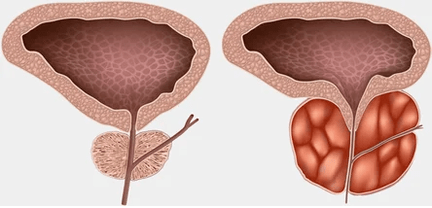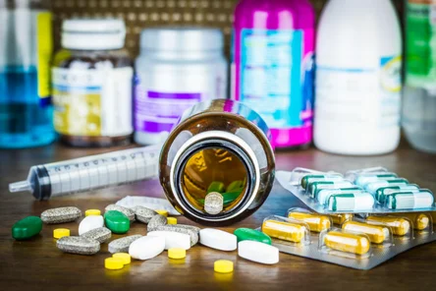
In the treatment of prostatitis, drug therapy is most often prescribed.During the course of its passage, the patient has to take drugs of various categories.Some are designed to eliminate the symptoms that cause discomfort, while others purposefully affect the affected gland directly, eliminating the most important cause.At the same time, medications differ in terms of exposure, since some are designed to eliminate acute, while others are against the chronic.Let's look at the most popular drugs used in the treatment of inflammation of the prostate gland.
Types of drugs for prostatitis
All drugs prescribed by the attending physician can be divided into several categories by the method of use:
- Tablets and capsules- They are accepted orally, moderately absorbed by the body, in the case of capsules, absorption occurs much faster, since all components fall into the destination after a short period of time after dissolving the gelatin membrane.
- Injections- It can be both liquid and powdered drugs, which are subsequently diluted in the working fluid, usually painkillers, are administered intramuscularly or intravenously, and the effect can be noticeable after a few minutes.
- Rectal suppositories (candles)- They have anti -inflammatory, antibacterial and analgesic effects, are introduced to the patient into the rectum when he is on his side, and in this position he needs to carry out about half an hour so that the drug is completely dissolved and absorbed.
- Instillation- a group of drugs, which has a maximum positive effect only in case of direct admission to the affected gland, the method is used in a hospital, since the introduction is carried out through the urethra.
- Microclisms- As a rule, non -drug drugs, such as herbal decoctions, include this, they are not able to replace drug therapy, but they can become a good remedy for eliminating pain or prevention.

It is worth noting that some types of drugs can be sold in several forms at once, for example, tablets and suppositories, so the attending physician must necessarily indicate this characteristic.
The most popular preparations for the treatment of prostatitis
Treatment of prostatitis with medicines is a rather complicated procedure that requires the doctor to select the correct selection of drugs that will not only relieve pain and eliminate other symptoms with manifestations, but will also help eliminate the root cause of the disease.The disease itself can also have a different origin, manifest in acute or chronic forms, and deliver the most diverse spectrum of inconvenience for the patient, limiting it as in natural matters, so lead to complete infertility.
In the treatment of prostatitis, classic tablets, intramuscular injections and candles for rectal administration can be used.The choice of the drug directly depends on the need for the urgency of the delivery of its components to the affected organ.
Additional funds
Treatment of prostatitis is not limited to a list of several drugs.Specialists can also use other types of drugs of different categories.
Fluoroquinolones
Forchinolones - antibacterial drugs used in the treatment of tuberculosis origin of prostatitis.These funds are used comprehensively, and the patient may be prescribed a course consisting of four or more drugs at once.
Cephalosporins
Cephalosporins are antimicrobial drugs designed to combat specific types of bacteria.
Such drugs can be both wide and directed spectrum of action, and the need to use this or that agent directly depends on the form of the disease and the cause of its occurrence.
Macrolides
Macrolides in the treatment of prostatitis are rarely used, since they are intended to combat individual types of bacteria, such as mycoplasmas and chlamydia.By the way, a disease such as chlamydia is often accompanied by prostatitis, so doctors prescribe several tests at once to identify problems with the prostate gland in the early stages.
In acute manifestations of prostatitis, the attending physician can prescribe several drugs of various categories at once.This approach allows you to effectively fight as symptoms and directly the disease itself.
Analgesics
In the vast majority of analgesics are prescribed if there is an acute pain syndrome, which is an integral satellite of chronic, but more often an aggravated form of prostatitis.The premiuming of drugs related to this group outside the framework of drug therapy aimed at eliminating the disease is strictly not recommended, since the body quickly gets used to them, and to achieve an analgesic effect, an increase in the dose will be needed, which can negatively affect the liver and kidneys.The course of analgesics is prescribed individually.
Alpha-blockers and muscleroles
The main objective of these groups of drugs is to relieve tension from the worsened muscles of the bladder, urethral canal, as well as reduce pressure in the pelvic area.These means help to get rid of a sense of discomfort and normalize urination processes.
Immunomodulators
Such drugs basically contain natural components, in the case of prostatitis - extracts based on the tissues of the prostate gland of cattle.Regardless of the drug, they all have a general principle of action, allowing:
- slow down the course of inflammatory processes;
- increase the tone of smooth muscles and walls of the bladder;
- minimize the possibility of blood clots;
- improve blood circulation in the prostate gland;
- reduce prostate volumes.
Immunomodulators can be used for a number of diseases, including chronic prostatitis, acute non -infectious prostatitis, prostate adenoma.
In addition, such tools are actively used for preventive purposes, which helps to avoid the occurrence of the disease or its relapses.
Vitamins and biological additives
Means that fall into these categories can reduce the level of inflammation, improve fluid outflow and relieve stagnant phenomena.The need for such drugs is also due to insufficient intake of beneficial nutrients in the body, especially during the course of antibiotics.
Prostatitis is a rather complicated disease, the treatment of which should only be done by a real specialist.An independent selection of drugs is strictly not recommended, since with this approach there is a large share of the probability of complications in the form of infertility, impotence and even the risk of developing cancer.The use of funds from prostatitis without consulting a doctor can lead to getting rid of the disease without surgical intervention.In addition, independent treatment is complicated by the inability to make an accurate diagnosis, since this requires appropriate equipment and knowledge.
It is also necessary to remember that most of the medicines used in the treatment of prostatitis are quite toxic, and some species are simply incompatible.If you feel pain in the pelvis during urination, defecation or ejaculation, often go to the toilet and cannot normally empty the bladder, do not take risks - consult a doctor.Thus, you will not only prevent the adverse course of the disease, but you can avoid the development of its chronic form with which you will have to live all your life.In addition, your sexual function will not be impaired and with timely treatment you can have completely normal and healthy offspring.


































